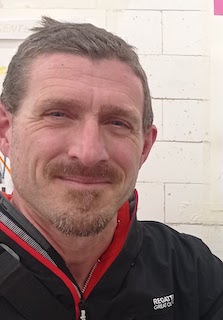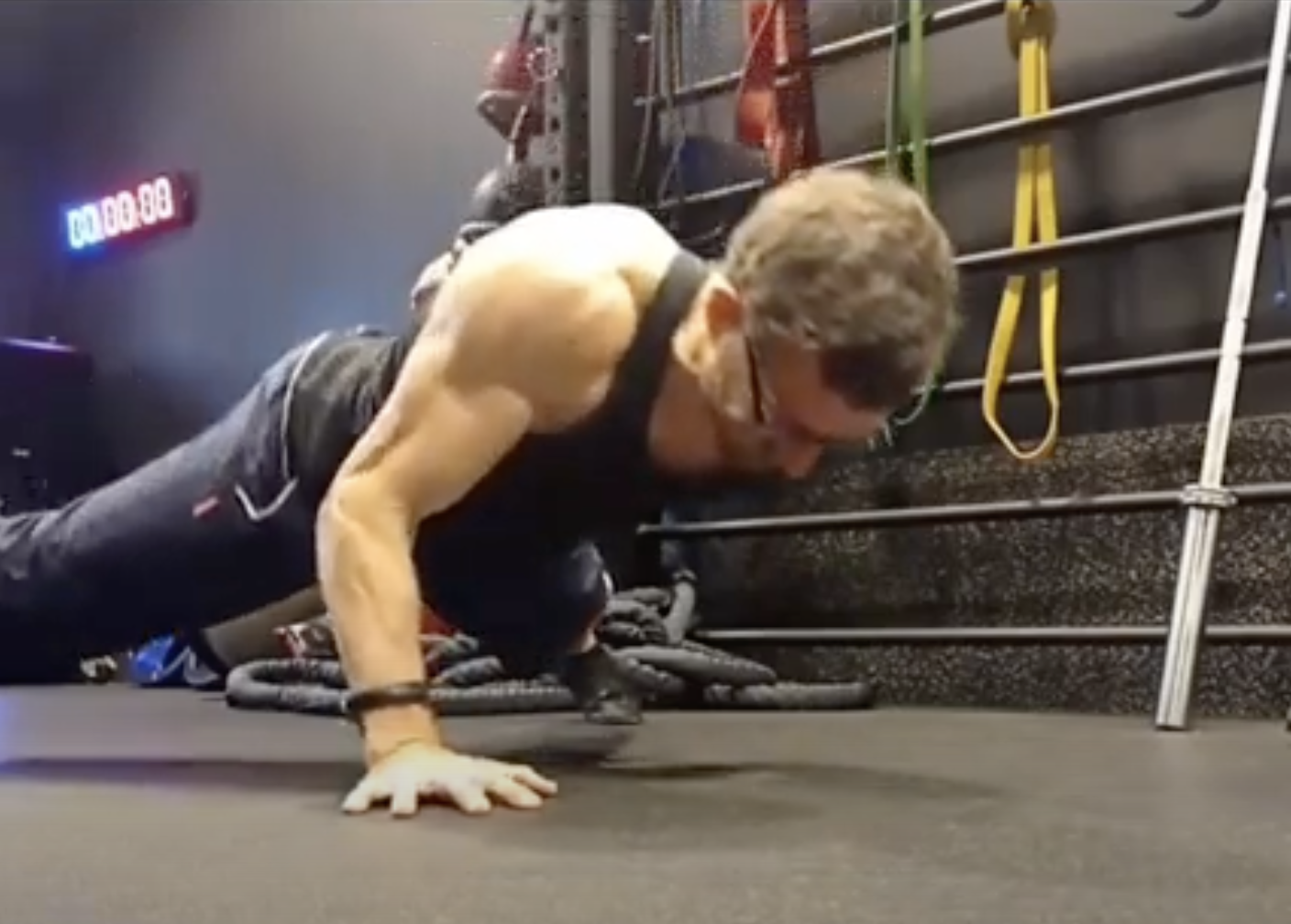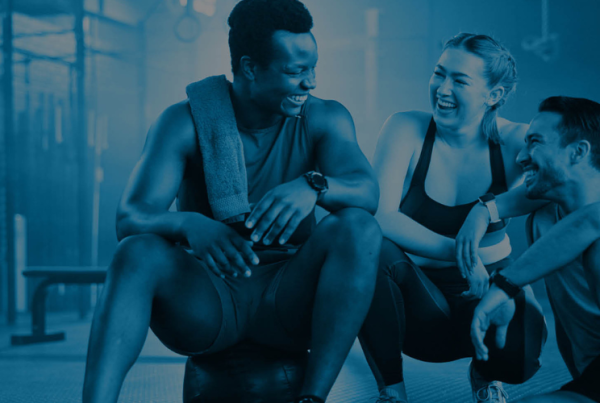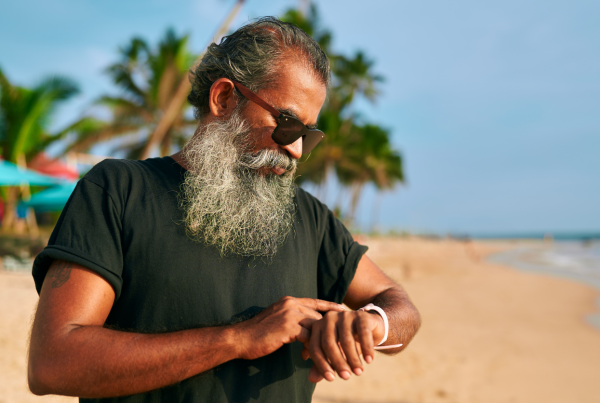Olly Jeffery explains why, at the age of 52, he’s choosing a career in the fitness industry, how his experience of addiction has helped him and how a pacemaker and type I diabetes won’t stand in his way.
There are many reasons I became interested in becoming a gym instructor. I found that people would ask me about my training and how to use equipment and do certain exercises, so I must have been giving off an air of being vaguely competent to start with. In the gym I would notice other people who seemed to be using very poor technique and wanted to be able to help them get the best from their training. I have also realised that I have a good way with people and I love to encourage them in whatever they are doing. I think that I can REALLY do this in the fitness industry! I also realised I wasn’t as good as I thought I was at some of the things I did, and wanted to make sure I could do things correctly myself, especially if I wanted to instruct others!
I have type I diabetes, which gives me an insight into taking underlying health conditions seriously, but also the knowledge that these conditions don’t have to limit you. I also had a pacemaker fitted in November 2022, which has given me insight into how important a positive mental attitude and determination is towards recovery from injury/operations.
Starting afresh in my fifties
I’m now 52 years old. I’ve got a huge amount of life experience but I think the most important aspect of this is that I have a greater understanding of how so many elements of ‘doing life’ impact on a person, both positively and negatively. For me and so many people I talk to, moving and exercising in some way, whether walking, cycling, playing tennis, pounding through a boxing class or doing a variety of weights in the gym, makes such a difference to physical and mental health.
Entering the industry now is good for me personally, as I have a bit more time to offer. I have a training preference for calisthenics and regularly get asked questions about my training, as I try to practise good form and technique. This gets noticed, especially as my physique is pretty reasonable for a 52 year old. I have conversations with fellow gym-goers or people on the seafront where I sometimes train on the bars they have there (I call the exercise area on our seafront Mussel Bech as it’s got its fair share of the molluscs, but it’s not quite got the sun-kissed sandy expanses of California). Conversations usually start with people asking me variations of “What do you do to look the way you do?” and “What do you eat?” We end up talking about positive mindsets, eating ‘normal’ food in reasonable amounts, balancing calories in against what your body stores or burns up, setting reasonable expectations over a reasonable period of time, making small progressive steps to hit longer term goals, and making sure people do something they enjoy, whatever it is.
I feel most people can achieve basic good physical health and activity levels if they put their mind to it. However, what I’ve really picked up is that it’s the motivation and encouragement that people often seem to need. This applies especially if they are having a tricky time in their life, aren’t in the ‘habit of moving’ or feel rubbish about themselves, or have underlying issues which impact on how they can engage with exercise in some form or another.
Over the years, my attitude to people who carry excessive body fat has totally changed. I used to be very dismissive but, since having lots of conversations with some incredible people, I’ve learned of the huge impact this has on their lives and some of the reasons they have arrived there. From my conversations, there’s usually at least one underlying issue that takes people down that path where they come to the realisation they now carry an unhealthy amount of body fat. Factors include things that impact on their sense of self-worth and confidence, their sense of purpose and eating compulsions.
A word about addiction, challenges and willpower …
As someone who is a gambling addict (but who has not gambled for around 20 years now) and having talked to others about their compulsions and addictions, I have some insight into addictive behaviour. I think that, if you’re overweight from an eating addiction, it’s one of the hardest things to face as a person because you can’t really hide it. There are so many people out there with various things that dictate aspects of their lifestyle due to an addiction (e.g., alcohol, gambling, illegal and legal drugs, medicines and porn) but they are usually easy to hide. An overweight or obese person has immediate challenges from the way people see them and make conscious or unconscious judgements, because you can’t easily hide the way your body looks.
I’ve talked to some people with very strong characters who have come into gyms with a will and purpose to become healthier, fitter, stronger and lose a large amount of their non-functional bodyweight into the process. That takes a LOT of willpower! One person said to me, “I once came into the gym when really overweight, looked at the machines and didn’t know what to do or how to feel comfortable, as everyone else looked like they knew what they were doing and were thinner than me. I then went on the treadmill and walked. I didn’t go back again.” Can you imagine how crap that makes a person feel? Anyone who finds starting exercise difficult needs LOADS of encouragement, good instruction and direction, and gentle accountability.
It is possible to change your career and join the fitness industry
The older I’ve got, the more I’ve learned that it’s important to have the confidence to be yourself. You can then bring that unique character, your ‘you-ness’, to whatever you embark on in the industry. You can learn loads from others who you respect and admire, and copy what they do, but don’t try to be them! You can learn to do the same great things they do by watching them in action and talking to them as much as possible. And use all your life experience to date in your fitness career – you’ll be amazed at how many ‘soft skills’ you can utilise like self-organisation and planning, time-keeping, working with others, listening, being welcoming, being empathic, knowing when to challenge people, etc.
You’ll also need to lose your ego! You’ll just heap pressure on yourself if you come across as knowing everything and then, when things go wrong, you’ll have a VERY big hole to climb out of because you’ll be scared of looking like an idiot! You’ll be much stronger as an individual and as a team by collaborating with other fit pros, learning from them and teaching them, and passing clients onto other professionals with more in-depth knowledge and experience than yourself. You’ll never know everything yourself, but you can make it your business to get to know those professionals who specialise in those areas; foster great relationships and your clients will respect you and trust you for referring them onto someone who can help them in an area in which you are not highly skilled.
Be willing to learn everything thrown at you; to analyse and sift through information given, query it if necessary, and look for different, reliable sources to help you get a handle on a subject. You’ll then develop your confidence, knowledge and experience base and be able to find your own niche in an industry with a huge range of individual disciplines and opportunities.
Personally, I would suggest doing an in-person course if possible. I learn best from copying and doing and asking lots of questions during the process. For me, the online course I’m doing suits my personal circumstances and it’s been pretty good so far. But, I would have loved a real-life instructor with me while doing the practical side of things.
I’ve met a variety of different-aged fit pros at different stages of their lives and careers. I’ve been very impressed with the outlook, attitude and drive of some younger people I’ve met recently, who are only in their early 20s. It’s given me a lot of encouragement!
Soaking up knowledge from many different sources
I have to say that I’ve loved the FitPro broadcasts, with the great range of information that is shared from a broad range of professionals. Amazing people like Cody Sipe of the Functional Aging Institute (a very funny chap with incredible knowledge and practice with older adults); Morc Coulson (a very practical educator who made so much sense when he spoke); Jono Petrohilos on boot camps (so much of the specific boot camp info could be related to many aspects of running a PT or instructor business); Aaron Barnett, with his huge depth of experience and knowledge of health and wellbeing with a great mental health focus; John Polley of The Next Level Community, with so many interesting tips, challenges and little insights into improving your techniques; Mikki Williams, who is very engaging and provided so much positive advice on planning my life and work!
The key point that seems to get mentioned at least once in every broadcast is “treat each client as an individual”. It makes perfect sense. I seem to have absorbed that a bit into my system now! Very importantly, I’ve had the privilege of being in contact with FitPro’s very own Teresa Wheatley, who has given me loads of encouragement over the last few months, plus she’s been the engaging and enthusiastic presenter of so many of FitPro’s broadcasts!
The manager at my local gym, Karen Monticelli, is one of the best examples I know of a true ‘people person’. She is someone I watch closely as she interacts with staff and customers. She seems to know everyone she meets, has built up knowledge of them as a person and their circumstances, and is ever so empathic and encouraging. She is one of my heroes and has encouraged me to keep on with being a gym instructor. At the gym I use, when I’m doing my workouts in the back of the combined Spin studio/functional area and there’s a Spin class on, I love listening to the way the different instructors interact with and instruct the ‘spinners’. I tend to learn from everything going on around me, and the way the instructors talk about the sort of tracks they are teaching, whether endurance, interval or strength/hill-climbs, is really helpful. The music tends to be pretty decent and gives me an encouraging blast when I’m struggling during a set.
Where do I go from here?
I’d really like to get working in a gym as an instructor to start with. Since discovering calisthenics nearly two years ago, I’ve fallen in love with it! It would be great if I could end up helping people to train in that area at some point. I think that calisthenics is going to become increasingly popular due to what I see as its growing profile, the physical results it can produce, the body awareness, strength, mobility and control gained, and a lot of exercises that can be done with little equipment – although access to things you can hang from isn’t always easy to come by. Not in my house and garden anyway!
I’ll see what opportunities arise in the future wherever I’m working, and from the clients and fit pros I meet. There’s something very interesting, challenging and fulfilling waiting for me somewhere!
A little bit about Olly….
Olly Jeffery lives by the sea in Kent, which provides many options for long walks with SuperWife, Ash. After a long career in insurance reporting services, he became full-time Dad to two inspirational children, while fitting in qualifying and working as a nursery practitioner, in between blagging it with balloon modelling, pebble painting, learning patience and a lot about himself!! When not training in Calisthenics, he’s a singer, drummer and vaguely passable guitarist in his church, at local open mic nights, plus leading enthusiastic, raucous singing at his church toddlers’ group.








